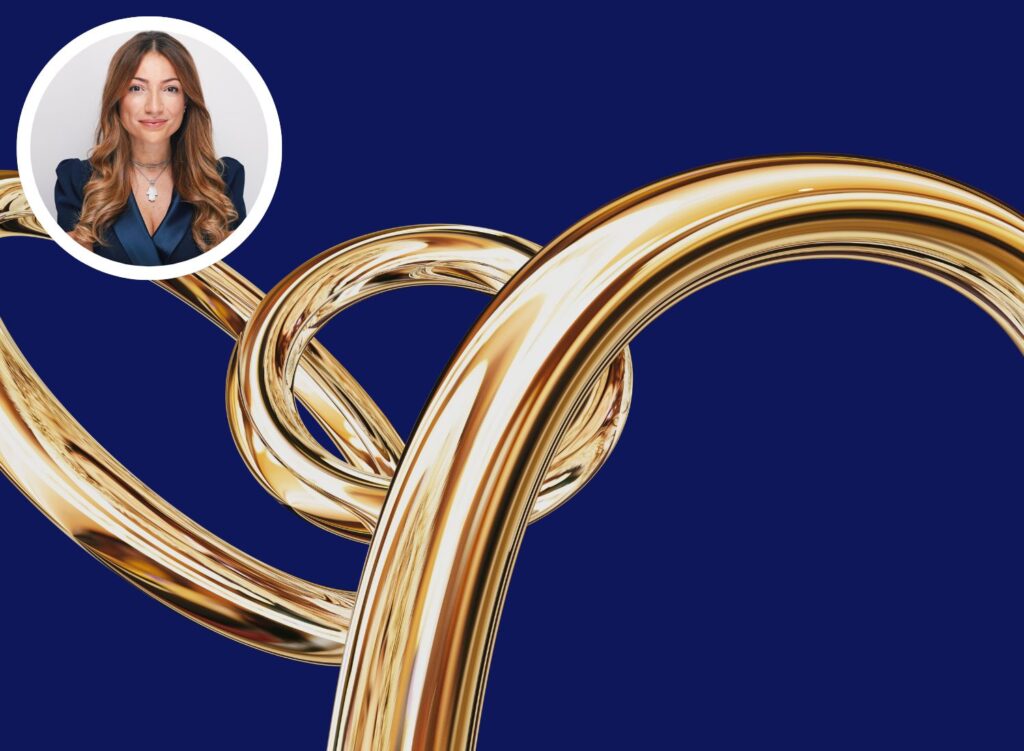As part of Gold Network’s special Women’s Month interview series, we are honoured to feature Feriel Zerouki, Senior Vice President, Corporate Affairs at De Beers Group. A leading voice in responsible sourcing, sustainability, and ethical supply chains, Feriel’s leadership has helped shape global standards in the diamond industry. In this exclusive interview, she shares her insights on integrity, innovation, and the evolving role of women in the sector.
As a leader in responsible sourcing, what are the biggest ethical and sustainability challenges facing the diamond and jewellery industry today?
The diamond and jewellery industry has made great strides in responsible sourcing and sustainability. But to truly understand the impact of a product, whether positive or negative, you must first know where it comes from. Traceability and trust are critical, not only for transparency but to ensure that sustainability efforts are authentic and meaningful.
Consumers increasingly demand assurance that their diamonds are responsibly sourced, yet achieving full traceability at scale remains a challenge. In 2018, De Beers launched Tracr, now the leading blockchain traceability solution for diamonds, alongside GemFair, which bridges the gap between large-scale mining and artisanal operations.
Community impact is just as important as compliance. It’s not just about meeting one-size-fits-all standards but ensuring that responsible sourcing delivers tangible benefits tailored to local needs. These needs vary across geographies and addressing them effectively is the true “secret sauce” to success.
Environmental responsibility is another key priority. Climate impact is a growing concern, and the industry continues to invest in long-term solutions to reduce carbon footprints. However, I worry about the pressure for quick, short-term fixes that may ultimately lead to greenwashing.
At its core, the challenge is ensuring that sustainability isn’t just a checkbox—it must be embedded into the industry’s DNA.
De Beers has pioneered key initiatives in ethical sourcing, from Best Practice Principles to GemFair. Which project are you most proud of and why?
I’ve been proud to lead many transformative projects, because they have stood the test of time and succeeded. GemFair stands out.
Why? Because it was deemed impossible. Many said it couldn’t be done. Built from scratch, GemFair tackles one of the industry’s most complex areas—artisanal and small-scale mining (ASM). For too long, ASM miners have been left out of formal markets, despite providing livelihoods to millions.
What makes GemFair special is that it’s not just about compliance or philanthropy—it’s about strategic inclusion. Seeing miners gain access to fairprices, safer working conditions, and ethical markets has been incredibly rewarding. Equally rewarding is seeing their businesses—and ours—grow together.
It’s proof that industry transformation is possible when we commit to real, on-the-ground change.
How do you see the balance between commercial priorities and sustainability commitments in the mining and jewellery industry?
I’ve never seen sustainability as separate from business success—they go hand in hand.
There’s a pressure in today’s world, and while that’s a good thing, it can also lead to greenwashing or pinkwashing. True sustainability isn’t just about meeting external expectations authentically; it’s about integrating it into commercial strategy.
This is where the magic happens—when sustainability and commercial value align.
If an initiative is great for sustainability but has no commercial value, it will be cut in the next downturn.
If it makes commercial sense but lacks sustainability credentials, consumers won’t trust it, and it could ultimately harm the business.
Sustainability isn’t just a moral imperative—it’s a business imperative. Consumers today are more conscious than ever. Trust is earned through transparency and responsible business practices. The brands that see sustainability as a strategic advantage—rather than a compliance exercise—will be the ones that thrive.
How can AI and digital innovations help enhance compliance with responsible sourcing frameworks?
Technology is a game-changer for compliance and transparency. AI, blockchain, and digital tracking tools are transforming the way we verify supply chains. AI can detect anomalies and flag risks in sourcing patterns, helping companies stay ahead of compliance challenges. Blockchain platforms like Tracr provide immutable, tamper-proof records of a diamond’s journey. Automation reduces human error and brings efficiency to complex supply chain audits.
But technology alone isn’t the solution—it frees up time for what matters most: building relationships and LEARNING. Technology should enhance, not replace, the human element: getting to know suppliers, communities, and customers. The learning we achieve not from textbooks but from real impact happens on the ground, where trust is built, and solutions are tailored to real-world needs.
What has been your experience as a woman in leadership in the diamond sector? How do you see gender diversity evolving in the industry?
When I started in this industry, leadership was predominantly male. Today, I’m proud of the progress we’ve made, and I thank the male allies who have helped carve out space for more women to rise.
But it’s not just about increasing representation, it’s about ensuring that women have equal opportunities to influence decisions. I’ve been proud to mentor, sponsor, and work alongside exceptional women, helping to create pathways for leadership and growth. Seeing them succeed and drive change has been one of the most rewarding parts of my journey.
Beyond gender, cultural diversity is just as critical. A more diverse industry is a stronger, more innovative industry.
We’ve made great strides, but there’s still work to be done.

